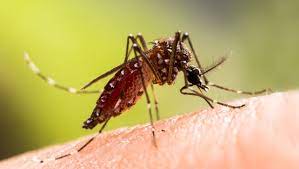People with diabetes should be aware of these 5 things in cases of dengue
More than a thousand cases of dengue have been confirmed in West Bengal; Kolkata has been the worst affected so far. Health agencies are frantically trying to contain the spread of this vector-borne illness in numerous Indian cities. The most common viral illness spread by mosquitoes worldwide is dengue. Children, pregnant women, and adults over 65 are particularly vulnerable to the virus and should take the necessary steps to be healthy. The danger also applies to those who have concomitant conditions including diabetes, hypertension, and cardiac issues.
The DENV strain infection may cause serious health issues including dengue hemorrhagic syndrome and others if it is not promptly treated. When it comes to the transmission of these illnesses, people with comorbidities need to take additional precautions.
HOW DOES DENGUE AFFECT DIABETIC PEOPLE?
Obesity, diabetes mellitus, hypertension, hyperlipidemia, chronic obstructive pulmonary disease, and ischemic heart disease were the six primary comorbidities that were seen in patients. The liver and kidneys are the most often affected organs by severe dengue, although the heart, brain, and skeletal muscles are all known to be affected.
Since dengue may cause diabetics’ blood sugar levels to rise, those who have diabetes are more likely to have significant dengue-related complications. The stress that dengue causes the body may drastically raise glucose levels. When infected with dengue, uncontrolled blood sugar might result in serious problems. It may also damage the liver and cause severe bleeding in addition to causing dengue shock syndrome.
DIABETES AND DENGUE: 5 WAYS TO MANAGE IT
High-Grade Fever: Diabetics should not take fever lightly, particularly if their blood sugar is out of control. Get medical assistance right now.
Monitoring Blood Sugar: To reduce the chance of contracting the illness, closely control and monitor glucose levels.
Increase Fluid Intake: The best way to prevent a number of health problems is to stay hydrated. Drink coconut water to keep your body hydrated and to regulate your electrolyte levels.
Wear long-Length Clothes: Although it might be difficult to wear long sleeves in hot, humid weather, it is necessary to take this precaution in the rainy season to reduce the risk of mosquito bites and other bug attacks.
Eat a Balanced Meal: It’s crucial to include entire fruits. Fruits in season, in particular, provide extra advantages. Fruits high in minerals, vitamin C, vitamin A, antioxidants, and fiber may help to boost platelets. The following fruits, such as kiwis, plums, cherries, papaya, apples, pomegranates, broccoli, and beets, may assist to maintain intestinal health while increasing immunity.
Rest Well: Maintaining a fit and healthy body is crucial. Allow youngsters to get the rest they need after a long day at school or at work so that their bodies can regenerate and recuperate.







